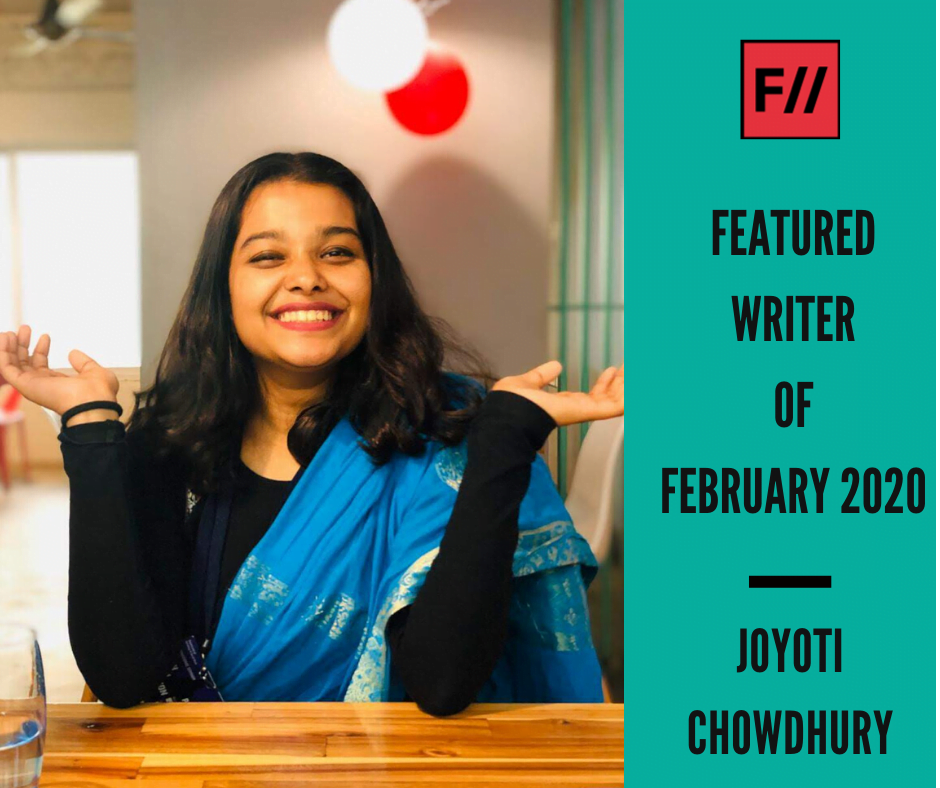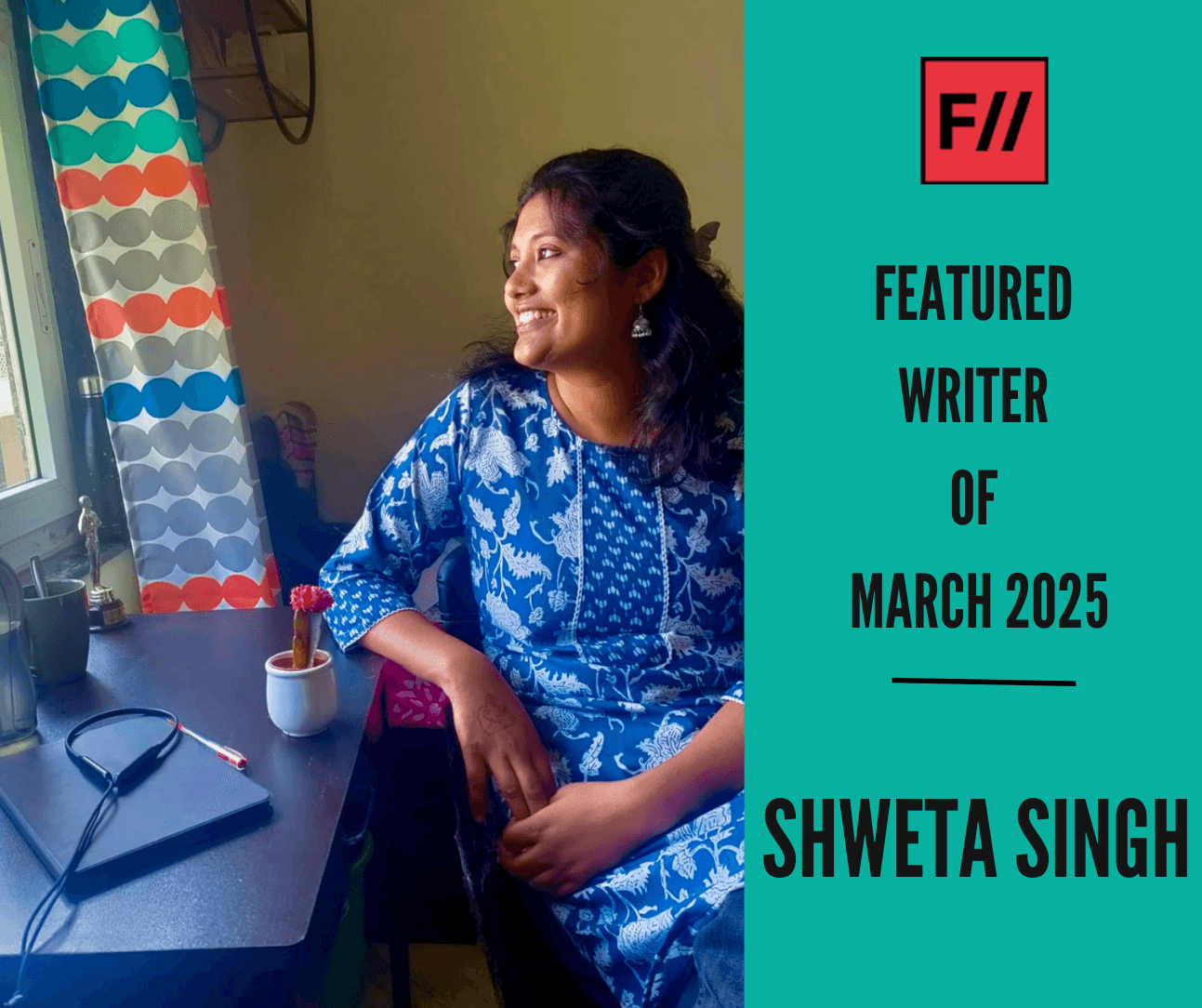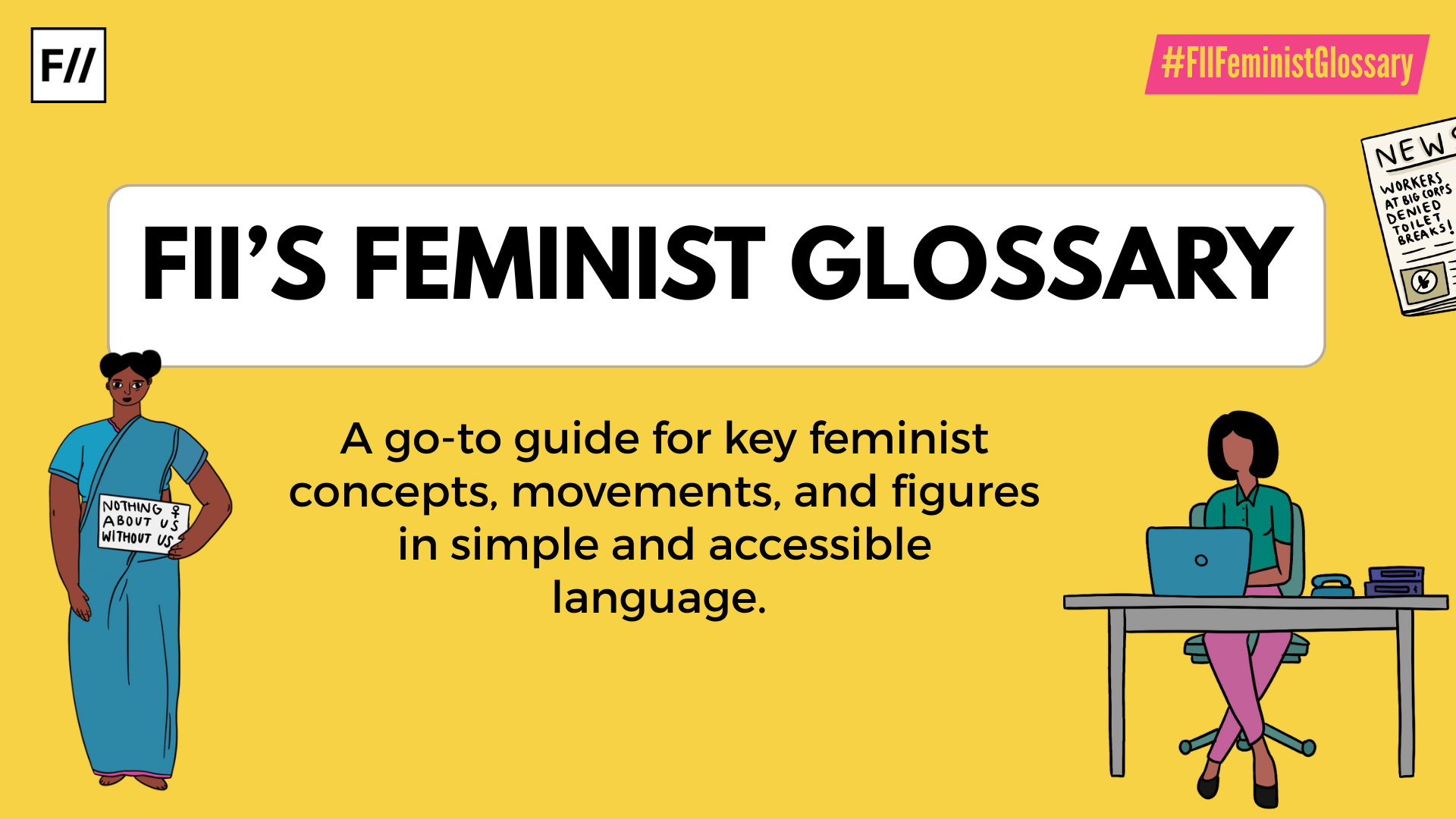We have been featuring the best writers from our writers’ community for their committed contribution to FII, making it what it is today. FII would not exist if not for the passionate and loyal feminist writers’ community that we have steadily been building over the last three years. This February, we feature Joyoti Chowdhury.
From covering queer activism in Kolkata to explaining the gendered stigma around the act of crying, Joyoti’s exceptional flair of writing has covered a host of topics, keeping us hooked to her articles and her activism. Some of her other popular articles are, Are Policies Around Toilets In India Effective Enough?, It’s 2018, Why Are We Still Stigmatising Menstruation? and many others.
FII: Tell us a little about yourself and what you do.
Joyoti Chowdhury: I am currently pursuing my Masters in Development from Azim Premji University. Snice last two years I have been trying to write informative as well as conceptual articles in a simpler language so that interested individuals from different fields can access knowledge as it should not be restricted only to classroom academia.
FII: How did you become a part of the FII writer family?
Joyoti Chowdhury: I started following Feminism in India in 2018 and was fascinated by the range of information one can avail here. I was overwhelmed by such a platform which constantly encourages and supports young feminist writers to upheld their ideology and reach out to readers. My first article published by FII, was about the pride event we organised during Pride month in 2018 and I have been small part of this platform since then. FII does not only talk about intersectional Feminism but also practices it. I feel privileged to be part of the family.
FII: How and when did you become a feminist? Which issues within feminism are close to your heart?
Joyoti Chowdhury: I might not able to describe the exact moment I became feminist, but I realised really soon that Feminism is the only answer to existing patriarchal practices around me. Standing in the current location, it is extremely important for us to acknowledge what social location are we coming from. For me the need of the hour in the current feminist movement would be ‘transversal politics’. It emphasizes on the possibility of exchange of dialogues across all boundaries to encourage participant to both listen and exchange perspectives. I believe, this shall enable us to understand different lived realities and unitedly emancipate ourselves from struggles of domination and oppression of patriarchy.
FII: What is your favourite piece on this site that you have written, and your favourite piece on this site that you have read? Why did they strike you?
Joyoti Chowdhury: I have two favorite pieces written by me, since both these are written from a very personal experience. The first one would be, ‘What is all the stigma around crying?‘ and ‘It’s 2018, why are we still stigmatising menstruation?‘. It is difficult to choose only one. But one of my favorite pieces on this site would be, ‘Toxic families: Beyond the ‘ideal’ family‘. I felt, there is much need to talk about how private relationships within private spaces are often idealised in a certain way while overlooking underlying power dynamics . This article significantly raises this important conversation.
FII: What do you like to do when not writing about gender and social justice?
Joyoti Chowdhury: I really like to doodle. It has really helped me in my tough phase to work on my patience.
FII: What do you like about FII and our work? What more would you like to see from us?
Joyoti Chowdhury: Feminism in India is an extremely informative platform. The articles published here are engaging. The diverse content makes the experience of the readers really enriching. It significantly raises conversation around issues which are often overlooked. One of my suggestion would be, similarly like Hindi if it is possible to provide platform for other vernacular languages to young writers who are comfortable in their mother tongue.
FII thanks Joyoti for her timely and valuable contributions. We are incredibly grateful to have her as a part of our writers’ community and appreciate her for her deeply informative writing. You can follow her on Instagram and Facebook.
About the author(s)
Feminism In India is an award-winning digital intersectional feminist media organisation to learn, educate and develop a feminist sensibility and unravel the F-word among the youth in India.




